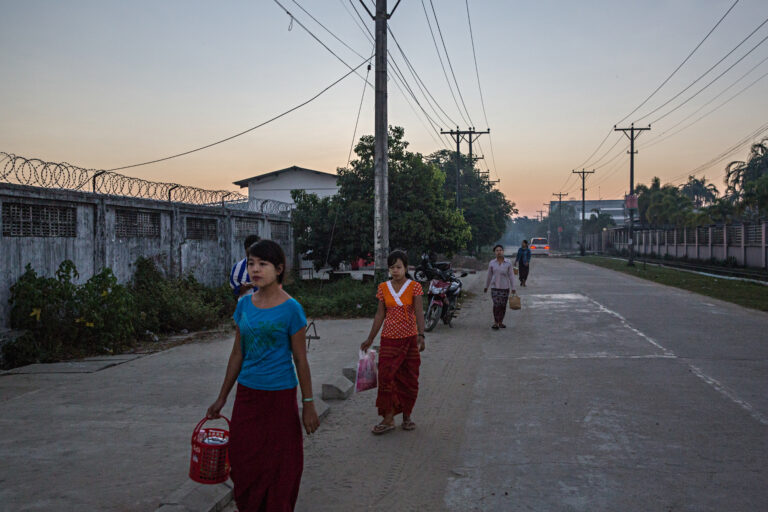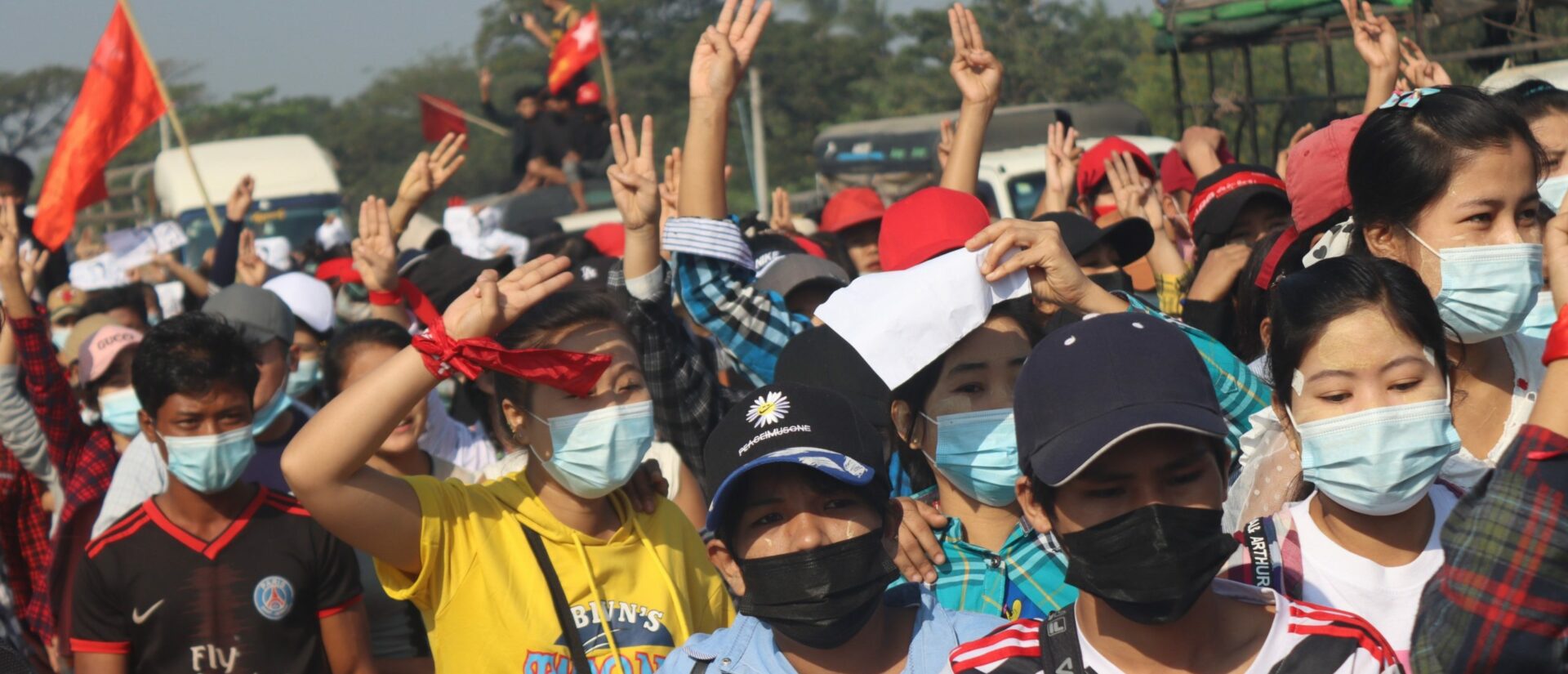
SOMO condemns Myanmar coup and urges garment companies to act
In the early morning of 31 January 2021, the military took power in Myanmar by means of a coup. Democratic institutions and processes have been shut down, free media outlets are closed, numerous people have been arrested and detained, including democratically elected political leaders and human rights defenders. Millions of people including civil servants and workers have joined the civil disobedience movement and are showing resistance through street rallies, noise protests and strikes. SOMO, alongside numerous governments, local and international civil society organisations, strongly condemns the coup in Myanmar. For the past five years, SOMO has been working on Myanmar, focusing on the export-oriented garment industry. SOMO urges garment companies that are operating in Myanmar to act now. They must condemn the coup and support the workers who are demonstrating or striking.
The Myanmar garment industry boom
In 2012, after decades of military-imposed isolation, the country opened up and linked up with the global economy. The garment sector then started to grow exponentially. SOMO, together with local labour rights organisations, has documented how the garment sector developed, offering work to hundreds of thousands of workers, predominantly young women. In a few years’ time, Europe became the most important market for Myanmar apparel. Other important export destinations are Japan and the United Kingdom.
Dutch and international garment brands and retailers have been sourcing from garment factories in Myanmar since 2012. The Open Apparel Registry(opens in new window)
lists 355 factories. Well-known names include C&A (with 44 suppliers), H&M (36 suppliers), Next (39 suppliers), Primark (12 suppliers), WE Europe (10 suppliers) and Aldi (19 suppliers) . There are 83 matches with the supplier base of the Dutch Agreement on Sustainable Garments and Textile (AGT).
Unfinished business – workers at risk
With the democratic transition in 2012, labour law reform started, but this process is far from completed. Enforcement of labour law is still weak and will now likely be weakened further by the military coup. The young labour movement, as part of civil society, a key actor to defend workers’ rights, is in the process of being built. It was only in 2012 that unions and NGOs were finally allowed to form. Only a minority of garment factories are unionised in Myanmar. Freedom of association is hardly respected. Grievance mechanisms for workers are insufficient and clogged. Factory-level unions, union federations and labour rights organisations have worked courageously the past years to build up a viable labour movement to protect labour rights. The current coup threatens to undo this all.
Great concerns over labour rights
We have heard stories about garment factories shut down in the days immediately following the coup. Workers who reported to work found the doors closed. Other workers have stayed home, distrustful and fearful of military violence. Many garment workers have joined the civil disobedience movement, together with millions of people in street protests and strikes. There is no legal arrangement for these types of leave. Still, workers should not be punished for such absenteeism. They should not be dismissed, or be subjected to any disciplinary measures. On the contrary, workers should receive normal pay and benefits. Already there are reports about workers who have been sacked for joining protests. In other cases, management of garment factories are pressuring their work force not to join the demonstrations. In one case, a factory reportedly locked the gates, physically preventing workers from leaving the factory and joining protests.
Urgent action is needed
The current situation calls for urgent actions. Garment companies active in Myanmar must first of all openly and strongly condemn the coup and call for the restoration of democracy and the rule of law. Whatever steps or measures are to be taken, the Myanmar people, civil society and labour movement should have their say.
From the garment industry, heightened human rights due diligence is now expected. This requires placing affected rights holders, in other words workers, central. Foreign garment manufacturers based in Myanmar and companies sourcing from the country must urgently take steps to help ensure workers’ rights and safety are guaranteed. Garment workers’ fundamental rights include the right to strike, to protest, to assemble, and to express themselves freely.
Now more than ever, garment brands and retailers should call upon their suppliers to ensure that the rights of the workers in their supply chain are respected. Workers should never and in no way be penalised for joining the civil disobedience movement, or for missing out on work in this chaotic period. They must make sure that workers are not sacked, and receive their normal wages and benefits. Garment brands and retailers should ensure that those people who are defending the rights and needs of workers in their supply chain are protected. Factory-based unions, labour rights organisations and others should be supported. They must ensure that union leaders and union members are not dismissed.
Part of human rights due diligence is to conduct proper risk assessments prior to as well as during sourcing. Investigating the types and identities of business partners is part of this. For Myanmar this specifically includes investigating whether there are possible linkages with businesses that are directly owned by or associated with the military.
Another element of human rights due diligence is publicly disclosing of supply chain information, including such risk assessments.
Over-hasty relocation of garment production, or “cut and run”, is not acceptable now. If garment brands are to suspend or stop sourcing from Myanmar, they need to disengage responsibly, taking the rights and needs of workers in their supply chain at heart, in line with the principles formulated in SOMO publications.
Statements and calls for solidarity
Various Myanmar and international groups and coalitions have issued statements and calls for solidarity. To mention a couple of interesting ones:
The International Workers Federation of Myanmar (IWFM), Myanmar’s largest garment union and an affiliate of IndustriALL Global Union, called on all brands invested in Myanmar to:
- To issue a public condemnation of the military coup in Myanmar;
- To issue a public statement that the military coup, if continued, will have a negative impact on future international investment and on the Myanmar economy and social development;
- To exercise due diligence to ensure there is no business or investment ties that are directly owned by or associated with the military in the supply chain;
- When working with businesses and suppliers not tied to the military in Myanmar, ensure that their business activities do not contribute to or aggravate human rights violations. And that no workers or union leaders should be punished for going on strike or joining the current demonstrations against the coup .
WE Generation Network, (WGN) together with the All Myanmar Trade Union Network (AMTUN) and the Basic Education Workers Union (BEWU) issued a statement on 17 February 2021, urging the international community & trade unions to respond to the current situation:
- to reject the military coup;
- to support the Civil Disobedience Movement;
- To deny the unloading of goods supplied by Myanmar at (international) ports.
On 5 February 2021, Fair Wear Foundation (FWF) published guidance for its member brands: FWF is urging its member brands sourcing from Myanmar to “take steps to ensure worker safety, including protection of union members, and ensure full and on-time payment of workers during this uncertain time. FWF stresses member brands should not only consult their suppliers but also local and international civil society organisations when possible.
On 19 February 2021, Global retail brands sourcing ready-made garments from Myanmar have released a joint statement with IndustriALL(opens in new window) , condemning the military coup and affirming their commitment to democratic standards.
Already in 2019, the Ethical Trading Initiative (ETI) published a guidance for businesses working in Myanmar. This plan was developed so that businesses could act responsibly in relation to the human rights crisis in Myanmar, yet retain a role in providing decent work and fostering respect for human rights. It recommends that brands adopt a human rights due diligence approach in line with the UN Guiding Principles on Business and Human Rights (UNGPs) and the UN-backed International Fact-Finding Mission on Myanmar. While ETI recognises that the due diligence advised here is challenging (due to the opaque nature of certain industries and the lack of information on the connections between the military and private sector), we consider it an essential step in ensuring brands have a positive impact when operating in or sourcing from Myanmar.
Related content
-
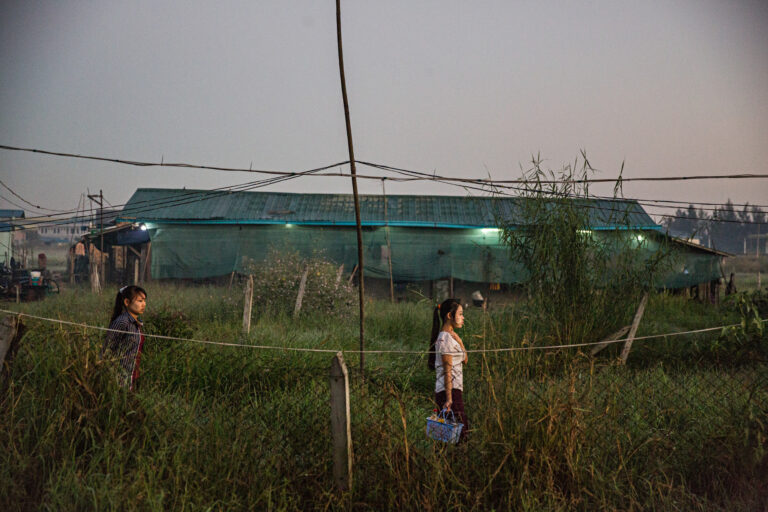
-
The Myanmar Dilemma Published on:
 Martje TheuwsPosted in category:Publication
Martje TheuwsPosted in category:Publication Martje Theuws
Martje Theuws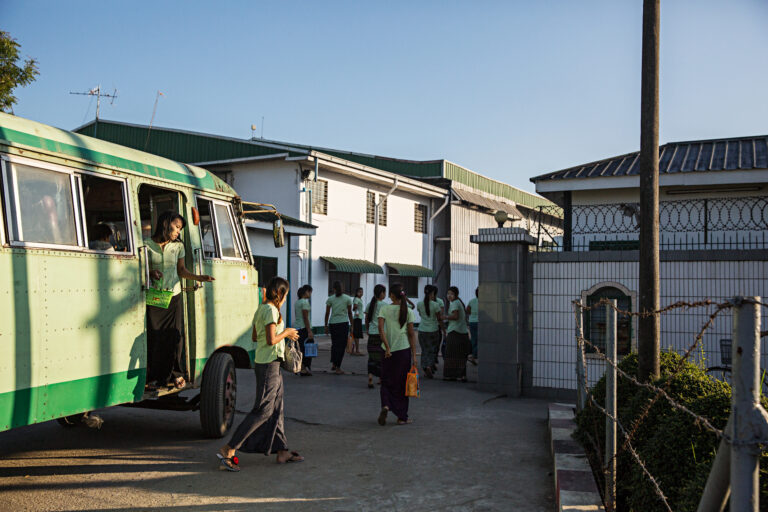
-

-
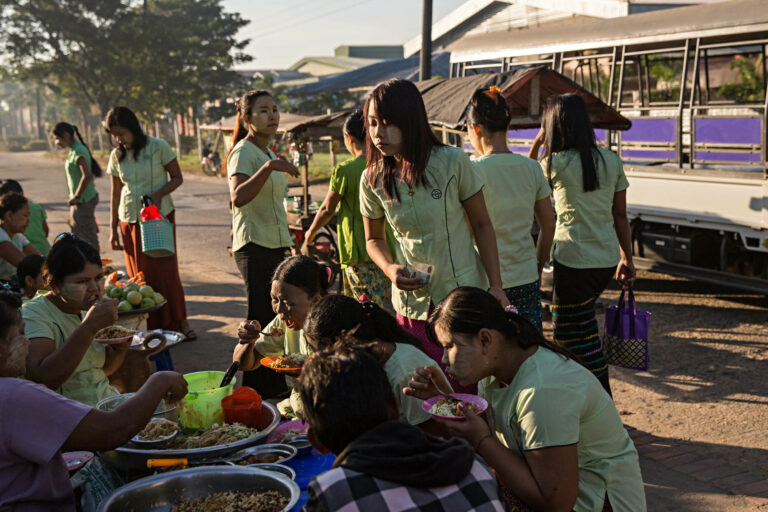
-
